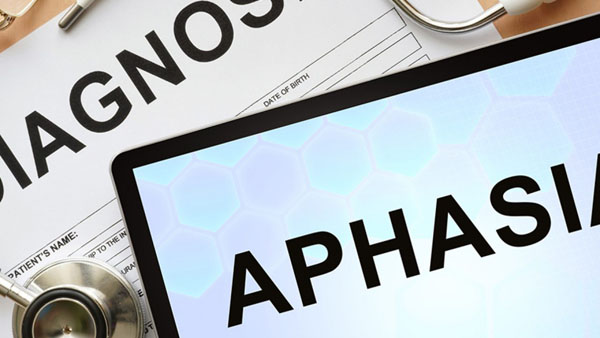Living with Aphasia - Trapped in your own Mind
4 March 2017
Few people can truly imagine how difficult it would be to live a life unable to communicate with their loved ones. Unfortunately, there are some people who do not have to imagine. For the countless individuals living with aphasia, struggling to communicate even the simplest message may be all but impossible. But for those with the right support, there is hope to be found.

What is Aphasia?
Aphasia is commonly confused with the numerous types of speech impairments and memory problems that can result from dementia or stroke. But unlike those with dementia, the mind of a person suffering from aphasia remains totally intact. While they may continue to form fully articulate thoughts and follow a conversation, they may not be able to express those thoughts in any traditional manner. Essentially, aphasia robs you of your language skills, taking your ability to read, write, or speak.
Losing the ability to express yourself leaves you effectively locked inside your own head. It impairs your ability to meaningfully interact with others — an essential ingredient to quality of life. As a result, many people who suffer from aphasia will go on to have changes in their personality as they struggle to cope. By nature, people are social animals, and in the absence of communication, it’s easy to feel cut off from others.
Types of Aphasia
There are multiple types of aphasia, each offering unique challenges.
Those who have agrammatica aphasia struggle to produce grammatically complete sentences, and can typically only form fragments of what they intend to say. With logopenic aphasia, people struggle to find the right words; a sort of tip-of-your-tongue phenomenon where the word you want seems just out of grasp. Those with semantic aphasia may speak fluently, but they struggle to understand others, and their sentences are usually totally incomprehensible. As a degenerative disease, primary progressive aphasia gradually takes a person’s ability to use their language skills. While they can still use language, they may be able to exercise those skills for only precious minutes each day before their ability to communicate is sapped — and their aphasia symptoms only worsen with time.
Causes of Aphasia
Most aphasia is caused by brain damage, often resulting from a stroke, tumor, infection, or a head injury. About one-third of people who suffer from a stroke will be affected by aphasia, and nearly 800,000 Americans will suffer from a stroke every year. While there are a handful of instances of temporary aphasia resulting from seizures or migraines, most aphasia is permanent, and all forms of aphasia remain without a cure.
Treatment and Prognosis of Aphasia
Many people are told there’s nothing that can be done about their aphasia, but this is often incorrect. While it’s true that speech therapy can’t stop progressive aphasia and it cannot reverse the effects of other types of aphasia, it can teach patients how to better cope with their impairment. Aphasia therapy can help teach people to use assistive tools and practice their impaired skills by naming objects or reading out loud, or teaching new strategies to help them communicate.
Residential Care Guide
Eligibility and AssessmentNew Aged Care Homes
Residential Care Financials
- Residential Care Fee Categories
- Current Fees and Charges
- Basic Daily Care Fee
- Means Tested Care Fee
- What is a RAD, DAP, MPIR?
- Current and Historical MPIR's
- Refundable Accommodation Deposit (RAD)
- Daily Accommodation Payment (DAP)
- Maximum Permissible Interest Rate (MPIR)
- Additional Service Fee (ASF)
Centrelink Form SA485 Explained
Centrelink Form SA457 Explained
Residential Care Agreement
Age Pension Current Rates